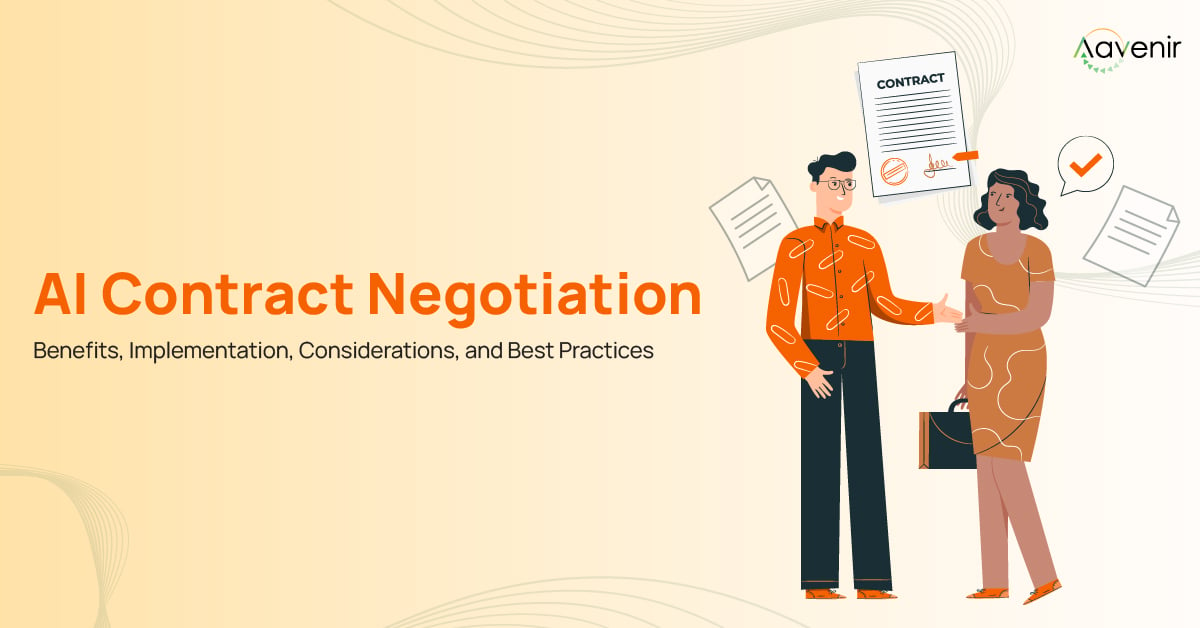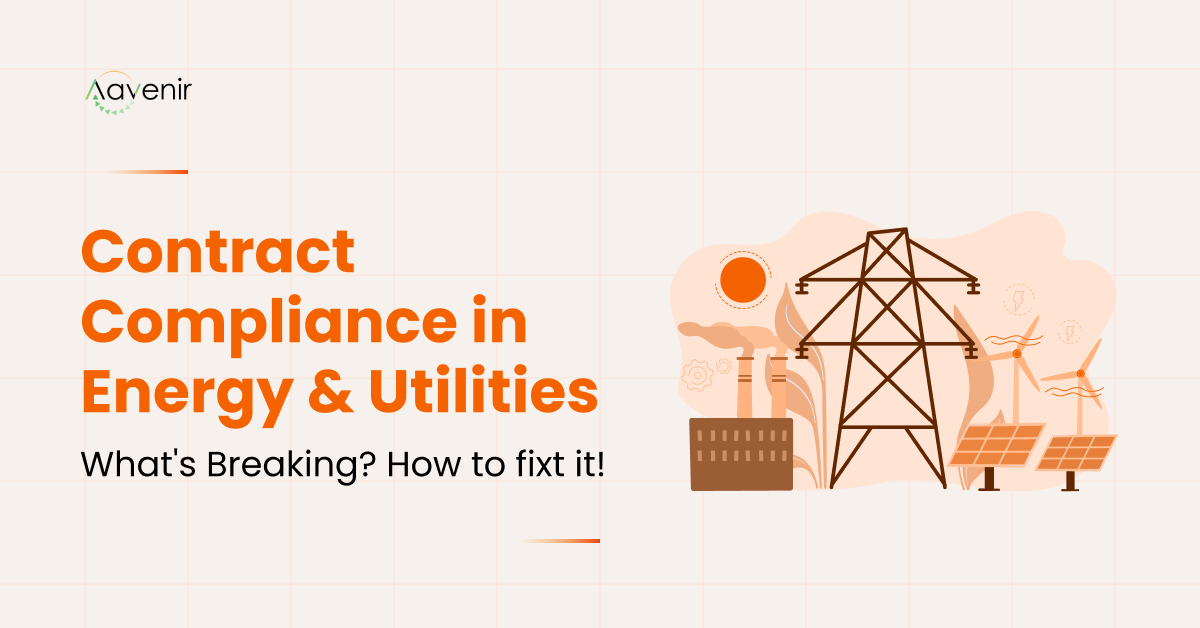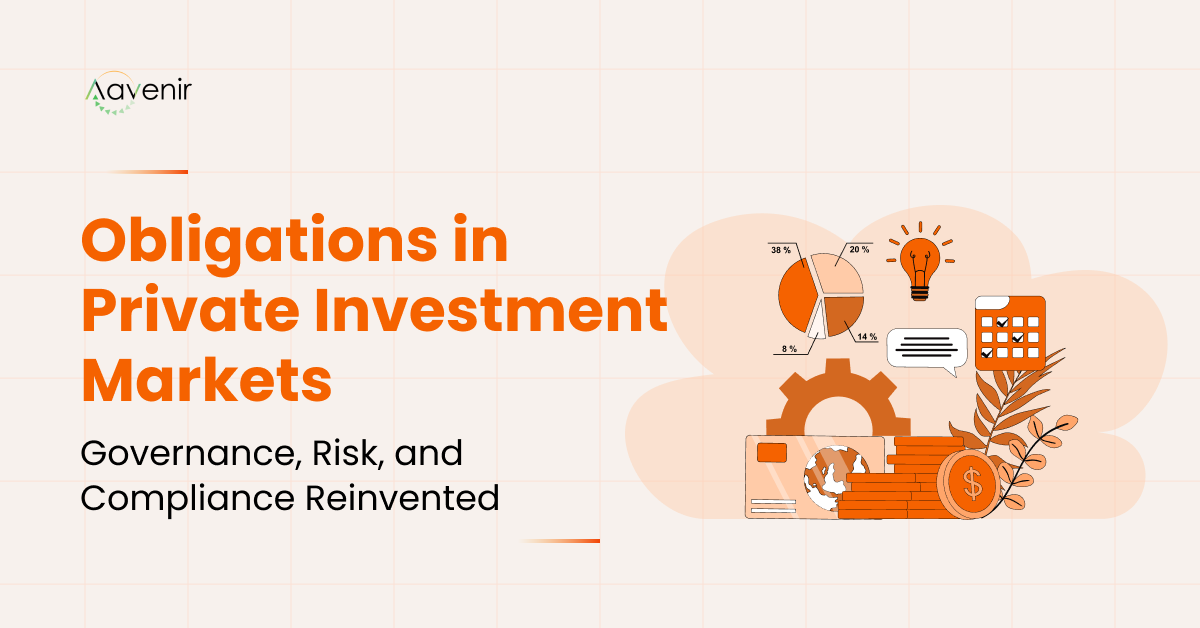Is your legal team stuck in never-ending contract negotiations? Are deals slipping through the cracks while revenue opportunities vanish? You’re not alone.
According to Huthwaite International 80% of companies operate without a formal negotiation process, missing out on better terms, stronger deals, and greater business security.
But the landscape is changing. AI contract negotiation is revolutionizing how legal professionals handle redlining and finalizing agreements. No more endless email chains or tedious manual reviews—AI brings speed, accuracy, and structure to the negotiation process.
In this guide, we’ll explore the benefits of using AI for contract negotiation, the implementation process, key considerations to keep in mind, and best practices for implementation. Let’s begin by understanding what AI contract negotiation really means.
What is AI contract negotiation?
AI contract negotiation refers to the use of artificial intelligence tools to automate the process of reviewing, redlining, and negotiating contracts.
AI-based negotiations are a step forward from traditional negotiations, where contracts are manually reviewed by multiple stakeholders like sales, procurement, legal, finance, and operations. Instead of endless legal review cycles, businesses use AI to summarize contracts, identify and redline risky clauses, and collaborate with counterparties for contract revisions.
Automated contract review and negotiation software like Aavenir uses natural language processing and machine learning algorithms to analyze contract language, suggest edits based on predefined rules or playbooks, and even simulate negotiation scenarios, saving hours of negotiation time.
Key components of AI contract negotiation include:
- Automated clause analysis
- Intelligent redlining
- Risk assessment and scoring
- Negotiation strategy optimization
- Real-time collaboration
AI contract negotiation is important for enterprises handling a large volume of contracts or for small-scale businesses that lack in-house legal counsel to review their contracts.
Example of AI-Based Negotiations In Action
A procurement team at a manufacturing company uses AI contract negotiation software to review supplier agreements. The AI automatically identifies clauses related to delivery timelines and penalties for late shipments. It flags terms that don’t meet the company’s supply chain policies and recommends alternative wording that ensures stricter delivery commitments, helping the team close agreements faster and reduce supply chain risks.
Now that you know what AI contract negotiation is all about, let’s take a closer look at the real benefits it brings to the table.
What are the benefits of negotiating contracts with AI?
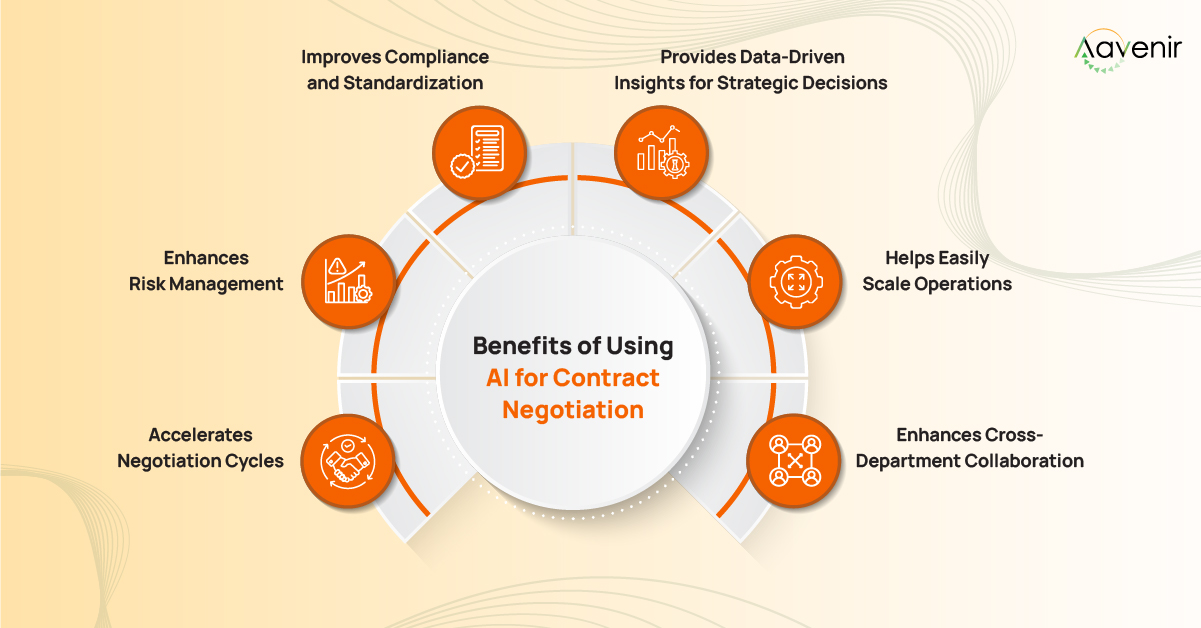
AI-powered contract negotiation is revolutionizing how organizations approach agreements, delivering greater efficiency, accuracy, and valuable insight. Here are the 6 ways in which using AI to negotiate your contracts can benefit your business.
1. Accelerates negotiation cycles
Typically, contract negotiations often take weeks or even months to finalize. AI streamlines this process by automatically reviewing and highlighting key clauses, allowing legal teams to draft, redline, and revise agreements much faster.
This approach helps cut down negotiation and contract execution time from months to days or even hours. This acceleration is quite important for high-volume, non-strategic contracts where speed is crucial for business operations.
2. Enhances risk management
Nobody wants to discover contract risks after it’s too late. AI acts like a vigilant assistant, providing instant, foolproof risk analysis and suggesting alternative clauses to fix problems before they become costly mistakes.
It reads through contract language and immediately flags anything that looks risky, while automatically spotting problematic language that doesn’t align with regulations and business goals. This proactive approach prevents costly legal issues before they arise.
3. Improves compliance and standardization
Ensuring contract terms align with business objectives and compliance requirements is critical, but manual reviews often miss details, increasing the risk of non-compliant agreements. Smart contract management tools like Aavenir Contractflow automatically check clauses against the latest regulations and company policies.
By leveraging legal databases and templates, they create compliant contracts faster, minimize human errors, and ensure consistent language and standards across all agreements, reducing legal and operational risks.
4. Provides data-driven insights for strategic decisions
Effective negotiation requires more than instinct—it demands data. Data-backed negotiations help secure better deals and more favorable terms. AI analyzes historical contract data to uncover patterns in risk, revenue opportunities, and cost savings.
It helps legal teams make informed, strategic decisions by identifying relationships between contract language and business outcomes. This shifts negotiation strategies from guesswork to proven, data-backed tactics, leading to smarter deals and faster outcomes.
5. Helps easily scale operations
As businesses grow, so does the volume and complexity of their contracts, often overwhelming legal and procurement teams. AI-powered contract negotiation tools allow enterprises to manage a higher volume of agreements without sacrificing quality or speed.
By automating review and negotiation processes, companies can efficiently handle hundreds or thousands of contracts at scale, ensuring consistency and reducing the risk of burnout in legal teams.
6. Enhances cross-department collaboration
Contract negotiations often involve multiple teams—legal, procurement, finance, sales, and operations—each with different priorities. AI simplifies collaboration by connecting contract data across key systems like ERP, CRM, and procurement systems.
It provides a centralized repository with real-time access for all stakeholders, automatically routing contracts to the right teams and offering unified dashboards for negotiation visibility. This ensures smoother communication, fewer bottlenecks, and faster decision-making across departments.
Simplify Contract Negotiations with AI-Powered Workflows
Close deals faster and smarter. Discover how Aavenir Contractflow simplifies redlining, risk analysis, and compliance—all in one platform.
Now that you’re familiar with the benefits of AI-powered contract negotiations, let’s explore some key factors to consider for a successful implementation.
Key factors to consider when negotiating contracts with AI
While AI can dramatically streamline and enhance contract negotiations, successful implementation requires careful planning. Let’s explore the essential considerations to keep in mind when negotiating contracts with AI.
1. Data quality and dependence
AI contract negotiation tools are mostly dependent on the quality and accuracy of the data they are trained on. Any incomplete or biased data can lead to inaccurate recommendations, ultimately rendering AI-based negotiations ineffective.
To avoid such a situation, it is important to establish powerful data governance, including data cleansing, regular audits, manual reviews, and strict data security measures.
2. Initial setup and integration time
Deploying AI for contract negotiation can be time-consuming. Significant time and effort are required for initial setup, including system integration with existing platforms like CRM, ERP, and other department-specific systems. Organizations should carefully evaluate whether they have the internal resources and technical readiness to manage a complex rollout without disrupting ongoing operations.
3. Ethical and privacy concerns
AI introduces new ethical considerations, particularly around data privacy and potential algorithmic bias. Companies must carefully assess how AI tools handle sensitive contract information and ensure compliance with regulations like GDPR and CCPA. Failing to address these concerns can expose businesses to legal liabilities and reputational damage.
4. Human oversight and accountability
While AI can automate many routine tasks, human judgment remains critical. Businesses must consider how they will maintain oversight of AI-generated recommendations and establish clear accountability for final decisions. Over-reliance on AI without appropriate checks can lead to contractual errors or overlooked risks.
5. Regulatory compliance
Different industries are governed by varying regulatory requirements, from GDPR in Europe to HIPAA in healthcare. AI systems used in contract negotiation must align with these frameworks. Organizations must evaluate whether their AI tools can adapt to evolving compliance standards and whether regular audits are built into their contract management process.
6. Continuous monitoring and improvement
AI models require ongoing monitoring and retraining to stay effective. Businesses should consider how they will track performance, update AI models in response to regulatory changes, and ensure that outputs remain accurate over time. Without a plan for continuous improvement, AI systems can quickly become outdated and ineffective.
With a clear understanding of what to consider when negotiating with AI, the next step is to put these AI-powered insights into action. Let’s explore how organizations can successfully implement AI in their contract negotiation workflows.
How to successfully integrate AI into contract negotiations
Here’s a step-by-step look at how businesses can effectively bring AI into their negotiation workflows.
1. Set clear negotiation goals and playbooks
A contract playbook outlines preferred practices, approved language, and ideal clauses and terms, providing a consistent, standardized framework aligned with company objectives. Define negotiation guidelines, preferred terms, and risk tolerance, then train AI using your historical contract data. Include your non-negotiables, acceptable alternatives, and approval workflows. This digitizes your best negotiator’s knowledge for AI to follow.
2. Identify where AI can help
Pinpoint negotiation tasks that are repetitive and error-prone, such as analyzing contract clauses, flagging non-standard terms, and assessing negotiation risks. AI can streamline these tasks and improve process accuracy.
Start with low-stakes contracts like vendor or service agreements. Save high-stakes, complex negotiations for human oversight while AI handles the standardized groundwork.
3. Pick the right AI negotiation software
When selecting an AI solution, focus on tools designed to address your specific negotiation challenges. If contract reviews are slowing you down, prioritize platforms with advanced contract summarization capabilities. Need better cross-team collaboration? Look for solutions that offer real-time negotiation dashboards and stakeholder routing.
A smart, AI-powered contract management platform like Aavenir can extend beyond negotiation support. It helps you automate contract creation, collect eSignatures, securely store contracts, track counterparty performance, manage obligations and renewals, and generate insightful reports, giving you a unified, end-to-end approach to contract lifecycle management.
4. Train your teams on AI negotiation
Successful AI implementation starts with proper training. AI models need to be trained on your historical contract data to ensure accurate, context-aware outputs. Tailor your training approach—legal teams will need a deeper technical understanding, while business stakeholders should focus on interpreting AI insights for better decision-making.
Incorporate real contract negotiation scenarios into training and establish clear guidelines on when human judgment should override AI recommendations.
Scale Contract Negotiations Without Compromising Quality
Aavenir helps automate negotiation processes to handle high contract volumes effectively while maintaining accuracy, compliance, and audit readiness.
With a roadmap for implementing AI in contract negotiations established, let’s look at practical best practices to maximize its effectiveness and ensure smooth adoption.
5 Best practices to optimize AI-led contract negotiations
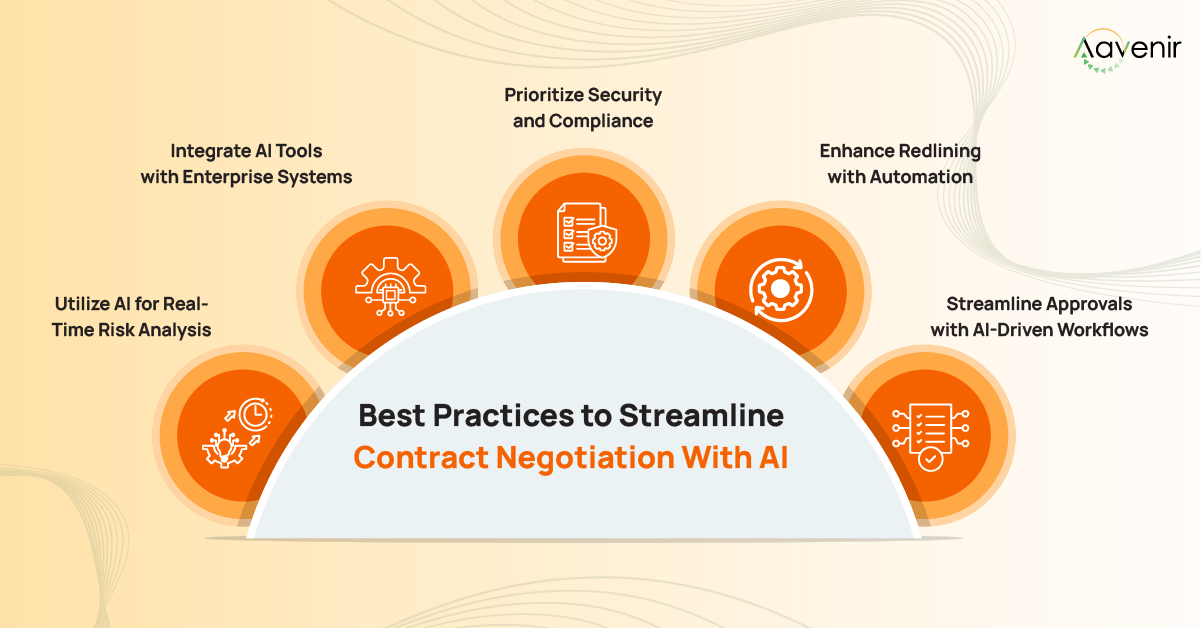
AI-led contract negotiation is transforming how organizations approach agreements, making the process faster and more strategic. Here are the 5 best practices you must follow to maximize the benefits of AI negotiations.
1. Utilize AI for real-time risk analysis
AI tools can swiftly assess contract terms against predefined standards and historical data to identify potential risks. For instance, Aavenir’s AI-powered contract review and negotiation software automates risk detection, streamlines redlining, and speeds up approvals, enabling businesses to close deals 85% faster.
2. Integrate AI tools with enterprise systems
Integrating AI contract tools with existing enterprise systems, such as CRM, ERP, and other business platforms, ensures that contract data flows smoothly between departments. This connectivity reduces manual data entry, minimizes errors, and improves overall efficiency in negotiation and execution processes.
3. Prioritize security and compliance
AI contract management solutions must adhere to strict security and compliance standards to protect sensitive data. Features like automated compliance tracking, SOC 2 certification, and robust access controls help organizations maintain legal and regulatory adherence while mitigating security risks.
4. Enhance redlining with automation
AI-powered redlining tools automatically detect, highlight, and track changes in contracts, making all modifications visible and reviewable. This not only speeds up the contract negotiation phase but also improves collaboration between parties by providing clear, real-time updates and maintaining a single source of verified information.
5. Streamline approvals with AI-driven workflows
AI-driven workflows automate contract routing to the appropriate stakeholders for review and approval based on predefined rules (such as contract value or risk score). This eliminates manual processes, reduces delays, and ensures contracts move efficiently through the approval process.
Ready to Accelerate Your Contract Negotiations?
From legal to procurement, empower every team to move faster. Aavenir’s AI-driven CLM helps you reduce risk, centralize workflows, and manage contracts at scale — up to 5x faster.
Negotiate contracts smarter with Aavenir
Managing contract negotiations at scale doesn’t have to be slow or risky. With Aavenir Contractflow, you can speed up negotiations, reduce risk, and stay compliant without the usual back-and-forth.
Contractflows’ built-in AI capabilities, like automated clause review and risk detection, help legal and non-legal teams identify issues quickly and accurately. It also enables real-time collaboration through tools like Microsoft Word and Avy, making the negotiation process smoother and more efficient. The results speak for themselves—up to 5x faster contract cycle time and 80% improved compliance standards.
If you’re ready to take the guesswork out of contract negotiations, book a demo and see how Aavenir makes it simple.
Frequently Asked Questions on AI Contract Negotiation
1. What legal limitations exist for AI negotiating contracts autonomously?
AI systems currently face significant legal constraints when autonomously negotiating contracts. Legally, contracts require mutual consent between parties, and AI lacks the legal personhood to provide such consent. While AI can assist in drafting and reviewing contracts, the final agreement typically necessitates human oversight and approval.
2. How do AI contract negotiation tools handle confidential or proprietary information?
AI contract negotiation tools handle confidential information through stringent data security measures. These tools use encryption, access controls, and compliance with data protection regulations like GDPR and CCPA, ensuring your sensitive contract data stays protected.
3. What are some of the best AI contract negotiation solutions?
Some of the most popular AI contract negotiation tools are Aavenir Contractflow, Juro, NegotiateAI, and Evisort. These platforms offer features like automated contract drafting, intelligent redlining, risk assessment, real-time collaboration, and negotiation insights. They help businesses streamline the negotiation process, reduce manual effort, and ensure better compliance and consistency across contracts.
4. Can AI contract negotiation tools adapt to unique, non-standard contract types or customized clauses?
Yes, advanced AI contract negotiation tools like Aavenir Contractflow can adapt to unique, non-standard contracts and customized clauses. These tools utilize machine learning and natural language processing to understand and process complex legal language.
By training on diverse datasets, AI systems can recognize and adapt to various contract structures and clauses, providing relevant suggestions and identifying potential issues.
5. What training or expertise is required for legal teams to use AI contract negotiation tools effectively?
Legal teams should have a basic understanding of how AI works and how it applies to contract negotiation. Training should cover how to use the specific AI tools, along with key topics like data privacy and ethical practices. Knowing the tool’s features and how to interpret AI suggestions is essential for using it effectively.
6. What happens if a counterparty uses a different AI negotiation tool?
If the other party uses a different AI tool, there can be challenges like mismatched data formats or differences in how the tools interpret contract terms. To avoid confusion, both sides should agree on standard formats and keep clear communication open. Human oversight is still important to resolve any gaps and make sure both parties are aligned.
7. How do AI negotiation tools handle multi-jurisdictional or cross-border contracts?
AI negotiation tools handle multi-jurisdictional or cross-border contracts by incorporating databases of international laws and regulations. They can identify jurisdiction-specific clauses, compliance requirements, and legal standards.
Some tools offer multilingual support and can adapt contract language to align with local legal terminologies and practices. However, due to the complexity of international laws, human legal expertise is often necessary to ensure enhanced accuracy and compliance.


